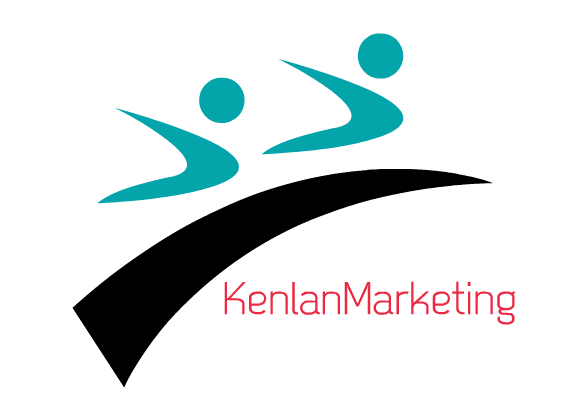

Blog
Continuing Education: Fuel for Your Professional Journey
Continuing Education Can Transform Your Life.
Continuous professional development is crucial in today's rapidly evolving and competitive job market. As professionals, it is imperative to stay relevant and up-to-date with the latest knowledge and skills in our respective fields. This is where continuing education comes into play. In this article, we will explore the definition and benefits of continuing education and provide a comprehensive guide on how to make the most of it.

Understanding Continuing Education
Continuing education refers to the pursuit of further learning beyond the traditional education system. It encompasses various formal and informal programs that help professionals enhance their skills and knowledge.
These programs can be undertaken through academic institutions, online platforms, or specialized workshops and seminars. By engaging in continuing education, professionals can stay ahead of the curve and maintain their competitive edge.
The Need for Lifelong Learning

In today's fast-paced and ever-evolving business landscape, lifelong learning has become a necessity. Technological advancements and shifting job market dynamics have made it essential for professionals to continuously update their skill sets. The knowledge and expertise that once guaranteed job security are now becoming outdated. To stay relevant and adaptable, professionals must embrace lifelong learning.
Advantages of Pursuing Continuing Education

Pursuing continuing education offers numerous advantages. Firstly, it enhances career prospects and employability. Employers are more likely to value professionals who demonstrate a commitment to self-improvement and growth. Additionally, through continuing education, individuals can gain specialized knowledge and expertise in specific areas, setting themselves apart from their peers. Indeed, the process of engaging in continuing education can boost confidence and self-esteem, resulting in improved performance in the workplace.
Different Formats and Modalities for Continuing Education

Continuing education programs are offered through various formats and modalities to accommodate diverse learning preferences and schedules. Traditional academic institutions provide options such as university degree programs, certification courses, and workshops and seminars. Alternatively, online platforms and e-learning have gained significant popularity. Massive Open Online Courses (MOOCs), webinars, virtual classrooms, and self-paced online programs offer flexibility and accessibility to professionals across different industries.
Selecting the Right Continuing Education Program

Choosing the appropriate continuing education program requires careful consideration of personal and professional goals. Professionals must assess their specific learning needs and identify programs that align with their aspirations. In addition, evaluating program quality and accreditation is crucial to ensure the value and recognition of the pursued education.
Finally, financial aspects and time commitments must be taken into account to make an informed decision.
Integrating Continuing Education with Work

Finding the right balance between professional responsibilities and continuing education can be challenging. However, it is not impossible. Working professionals can adopt various strategies to manage their time effectively. Techniques such as prioritization, time blocking, and utilizing breaks and commute time can create opportunities for learning. Additionally, seeking employer support and sponsorship can provide a sense of encouragement and facilitate the integration of continuing education with work responsibilities.
Overcoming Challenges and Motivating Yourself

Engaging in continuing education can be daunting at times, particularly when facing self-doubt and imposter syndrome. To combat these challenges, individuals can employ strategies such as setting achievable goals, breaking down tasks into manageable steps, and seeking support from peers and mentors.
Building a strong support network and partnering with like-minded individuals can provide motivation and accountability throughout the learning journey.
Utilizing Continuing Education for Career Advancement

Continuing education offers opportunities for professionals to stay up-to-date with industry trends and advancements. By leveraging new skills and knowledge acquired through continuing education, individuals can make significant contributions in their workplaces. Continuing education programs often provide networking opportunities, enabling professionals to connect with industry experts and enhance their professional reputation.
Continual Learning in Various Professions

Continuing education is applicable in a wide range of professions. Healthcare professionals, for instance, benefit from ongoing training and certifications to provide the best possible care. In the legal field, continuing legal education (CLE) ensures that lawyers remain knowledgeable about changes in laws and regulations. Engineers and technical professionals rely on continuing education to stay updated with emerging technologies and best practices. Certified Public Accountants, Chartered Accountants and others in this profession are required to engage in continuing education. Also, professionals in creative industries embrace lifelong artistic development to refine their skills and stay inspired.
Financial Aspects of Continuing Education

While continuing education offers numerous advantages, it is important to carefully consider the financial aspects. Professionals should weigh the costs of education against the potential return on investment in terms of career advancement and increased earning potential. Fortunately, scholarships, grants, and other funding options are available to support continuing education endeavors. Additionally, individuals should research and understand the tax benefits associated with education expenses to optimize their financial situation.
The Future of Continuing Education

Continuing education is not static; it is continually evolving to adapt to advancements in technology and society. The integration of technology, such as virtual reality, is revolutionizing the way we learn. Personalized learning experiences and adaptive learning platforms are becoming more prevalent, catering to individual learning styles and preferences. Lifelong learning is gradually becoming a societal norm, emphasizing the importance of continuous self-improvement and growth.
Summary and Conclusion

Continuing education plays a pivotal role in igniting one's professional journey. It offers immense benefits in enhancing career prospects, gaining specialized knowledge, and boosting confidence. By selecting the right program, integrating education with work, and overcoming challenges, professionals can utilize continuing education for career advancement.
Regardless of the profession, continuing education ensures that individuals are equipped with the latest skills and knowledge required in their respective fields. So, embark on your own learning journey, embrace continuous learning, and unlock endless possibilities.
FAQs (Frequently Asked Questions)

A. What is the difference between continuing education and a formal degree?
Continuing education encompasses ongoing learning beyond a formal degree. While a degree signifies the completion of a specific educational program, continuing education allows individuals to further develop their skills and knowledge throughout their careers.
B. How can I find accredited continuing education programs?
To find accredited continuing education programs, individuals should research reputable educational institutions, professional organizations, or regulatory bodies in their field of interest. These organizations often provide information about recognized programs and certifications.
C. Can I pursue continuing education while working full-time?
Yes, pursuing continuing education while working full-time is possible. Many programs offer flexible schedules, online options, and self-paced learning to accommodate the needs of working professionals.
D. Will continuing education guarantee me a promotion or salary increase?
While continuing education can enhance your qualifications and make you more competitive in the job market, it does not guarantee a promotion or salary increase. However, it significantly improves your chances of professional growth and career advancement.
E. Are there any age limits for engaging in continuing education?
No, there are no age limits for engaging in continuing education. Lifelong learning is encouraged for individuals of all ages, irrespective of their career stage or background.
F. How can I convince my employer to support my continuing education endeavors?
To convince your employer to support your continuing education endeavors, emphasize the benefits it will bring to both you and the organization. Highlight how the new skills and knowledge acquired through continuing education can contribute to your job performance and the company's success. Additionally, present options for flexible scheduling or potential cost-sharing arrangements to make it a win-win situation for both parties.




